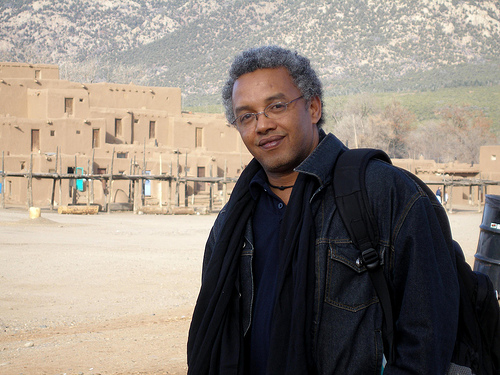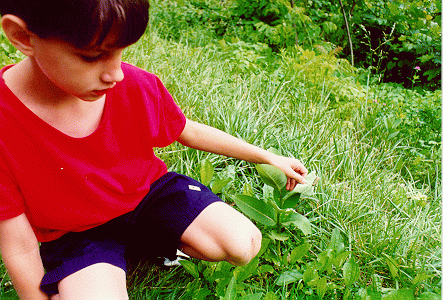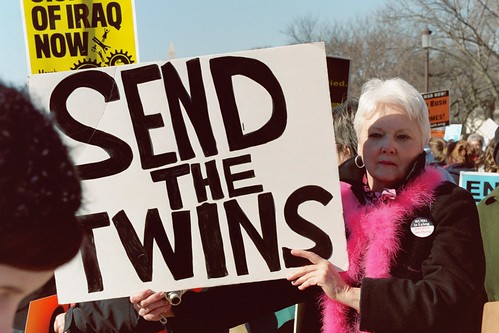

I recently accompanied my school director to the hospital deliver homework to a student who had gone into labor pre-maturely (the student had requested the work! totally blowing all stereotypes of either teen moms or inner city youth who are not motivated to do school work) Prepared with a special number to identify the student we walked in and asked the lady at the front desk where the birthing floor was. She directed us to a set of elevators which we easily found. An elevator soon arrived and a doctor or intern or someone got off. We got on, noticing a small cart like thing in the middle but choosing to ignore it. We requested the floor we needed, but the doors didn't close. I looked down to inspect the little cart more closely and saw a sticker on it that said "I prefer to ride alone" I pointed this out to my director. We weren't really big fans of letting a little cart tell us what to do, but then it started to move! This was most strange! We got off the elevator and the little cart followed! It even followed me around the corner where I was going to find another elevator. A little spooked I got out of its way and went back to my director, laughing about the crazy little robot cart.
When we arrived at the birthing floor, a woman briskly pointed us to a phone next to a door. We picked up the phone, dialed the appropriate number and gave the student's patient number. Since we were not on her list of visitors we could not see her ourselves so someone else came to the door to collect the work and we sent with it wishes of wellbeing and left, taking another set of elevators in hopes of preventing another robot encounter.
A good friend of mine is currently about 8 months pregnant and we have talked a lot about her process of finding a place to give birth. She was given the option of the same hospital our student was at, another hospital, or a birthing center designed to serve everyone in the community, including low income families. After calling different places and trying to get tours and things she decided on the birthing center - and she loves it. She goes in for her regular checkups as a part of a group of women all due at about the same time. While waiting for their checkup they participate in classes on breast feeding, pre-natal yoga and other health related issues. My friend told me that nearly all the staff know her by name after she has visited only three times. It is clear that they value every mother who walks through the door and do their best to serve her.
I shared the robot story with some friends the other night and one of them researched and found this article about them - One of the most telling lines i think in this article that describes all the things the six robots at this hospital can do is " The Tug [robot] doesn’t take breaks and doesn’t call in sick and doesn’t eat lunch,” Todd [director of material management] says. “I don’t have to worry about people getting married or flirting with each other.” I get the feeling that the $2.85 per hour cost of the robot is valued over any sort of human touch, or other interaction, and it is clear that this director finds robots to be less bothersome than humans. meanwhile, the birthing center is at risk of closing in january due to lack of funds. We joked the other night about robots delivering babies and performing surgery, hopefully a far fetched thought, but also a scary one.

























